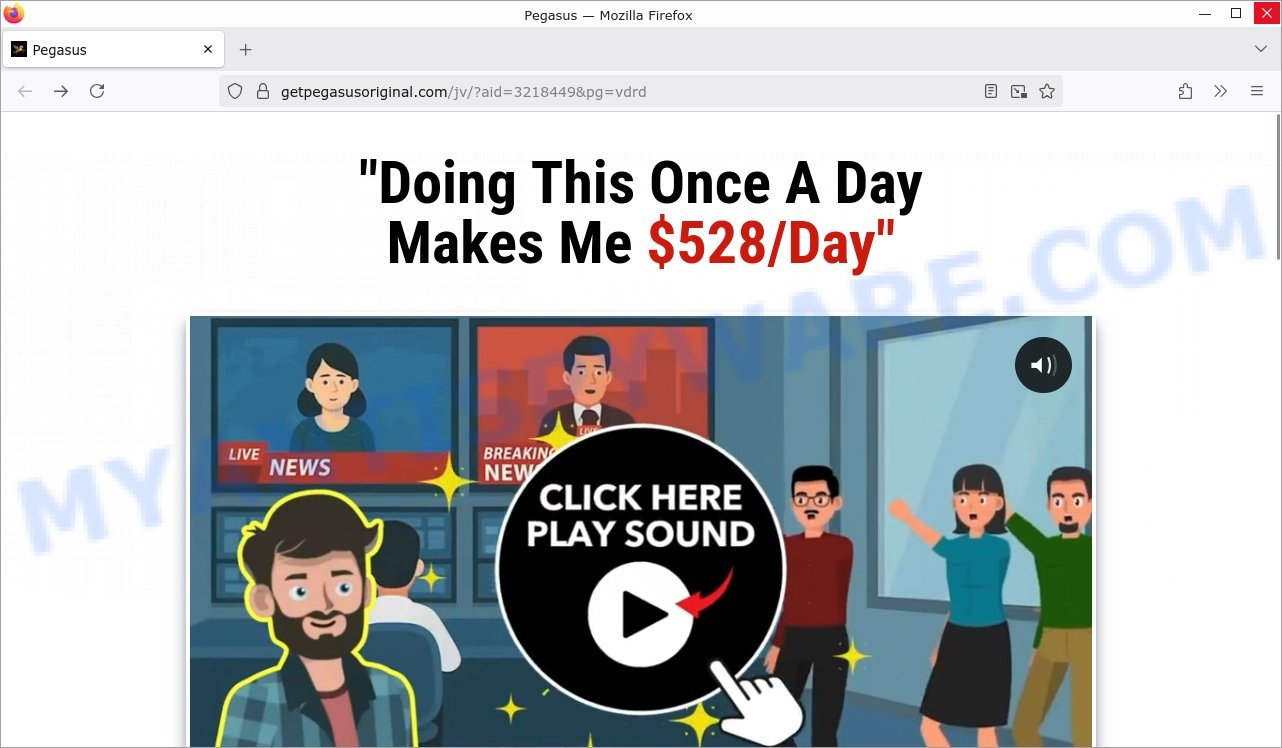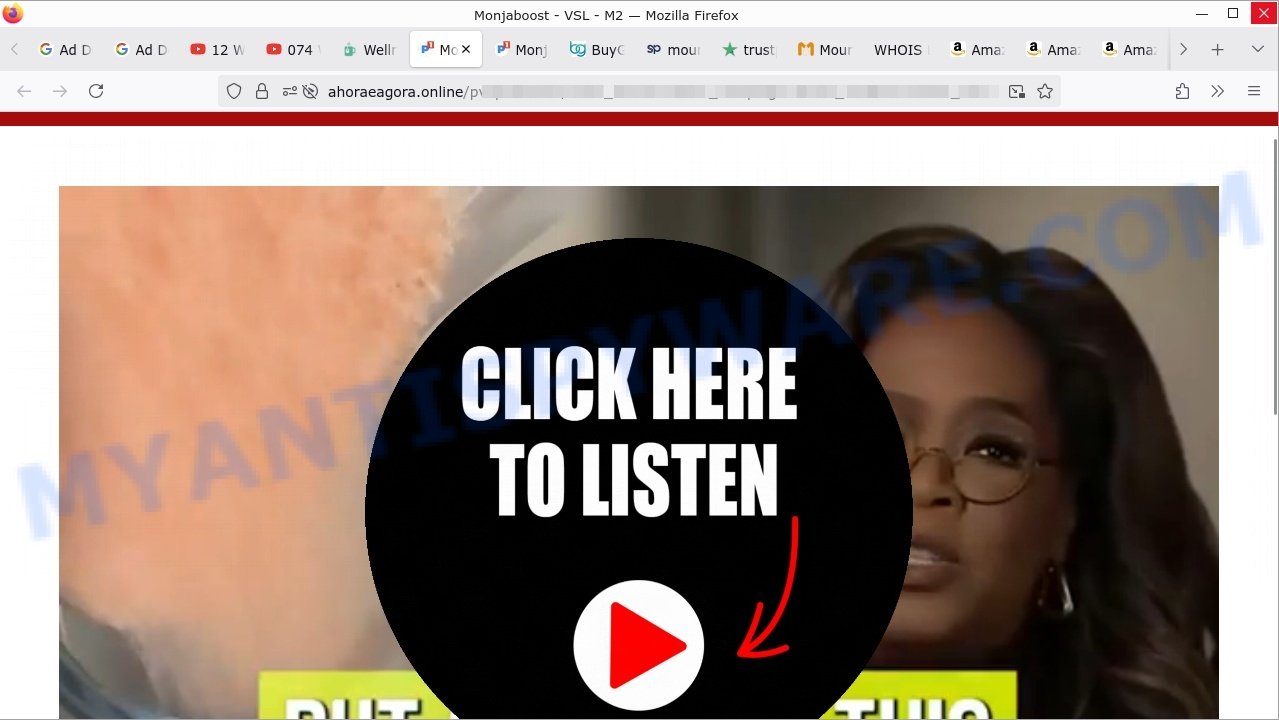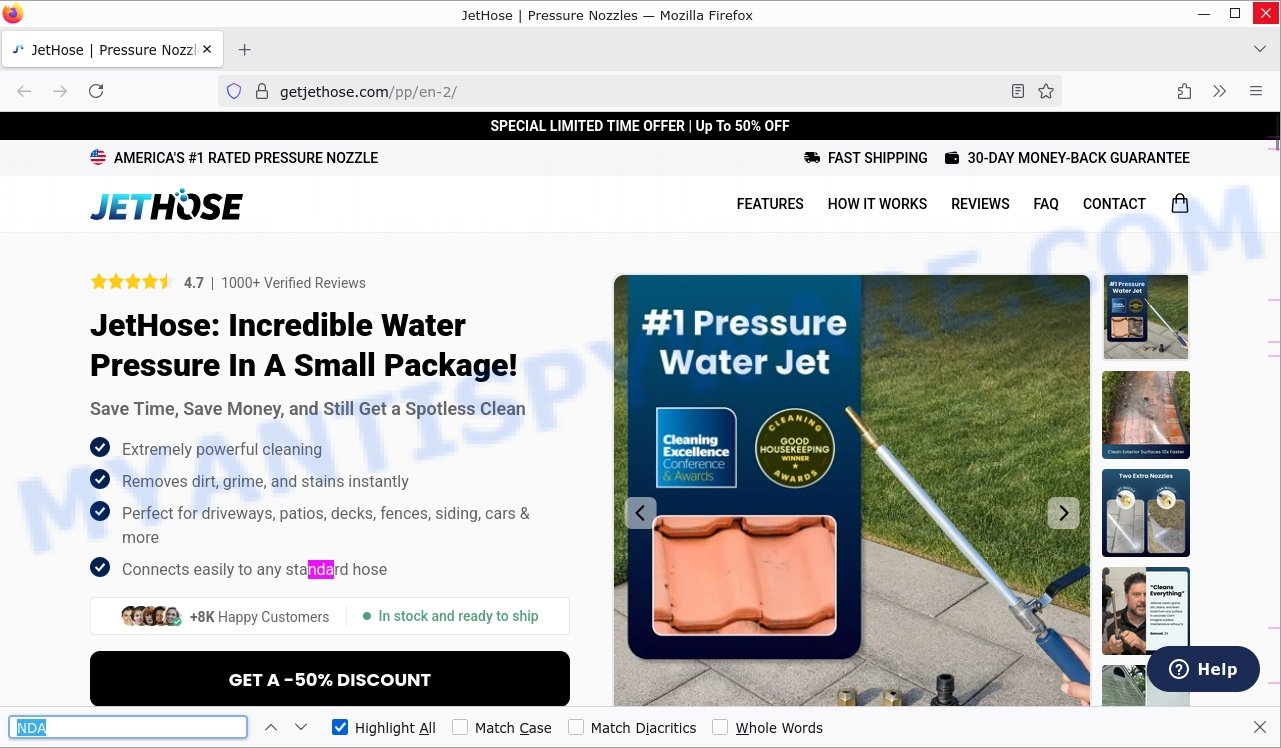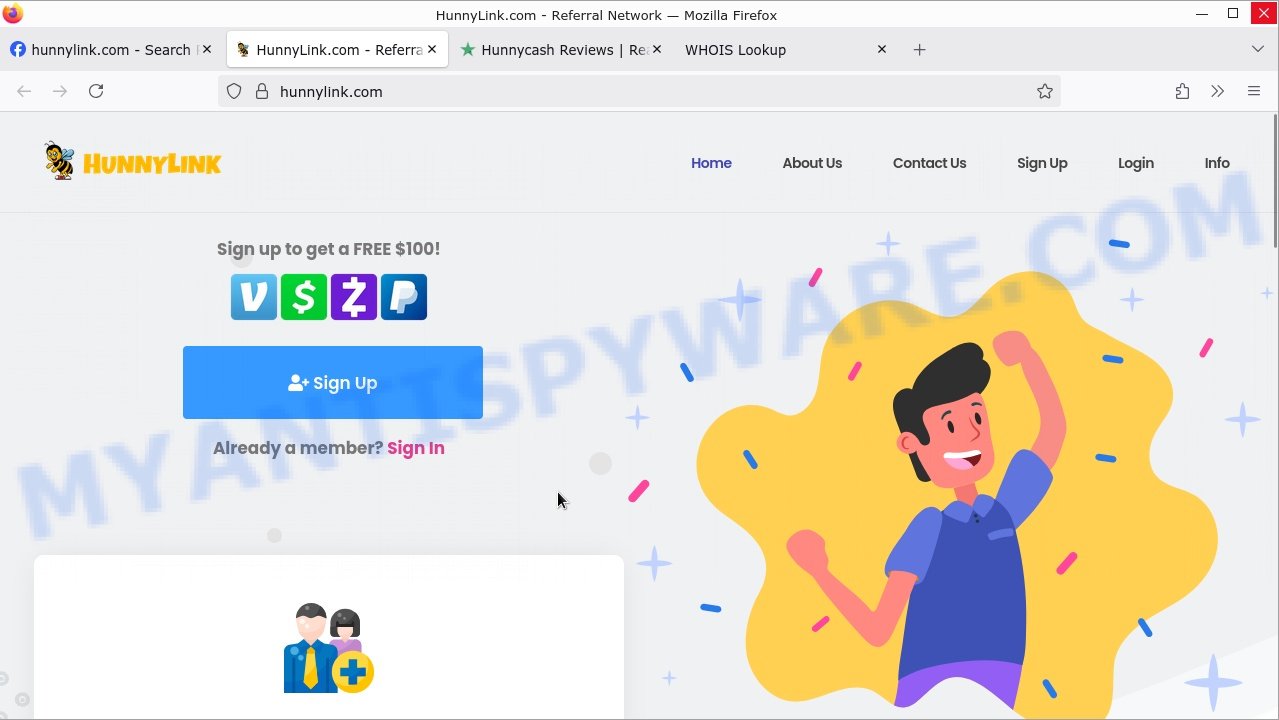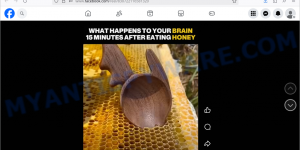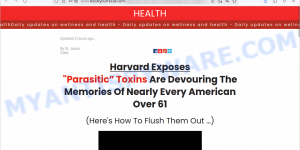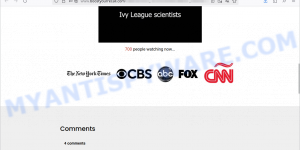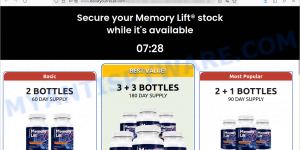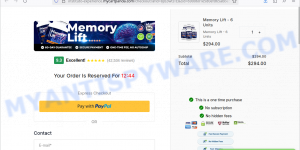Memory Lift is the latest online scam marketing itself as a breakthrough cognitive booster fueled by a fake “honey trick” that supposedly sharpens memory and banishes brain fog. But this slick operation uses a classic bait-and-switch tactic: it lures you in with catchy Facebook videos claiming “what happens to your brain 15 minutes after eating honey,” then funnels you through a maze of fake news sites, misleading testimonials, and bogus “Harvard scientist” endorsements — all leading to a pushy sales pitch for an unproven supplement.
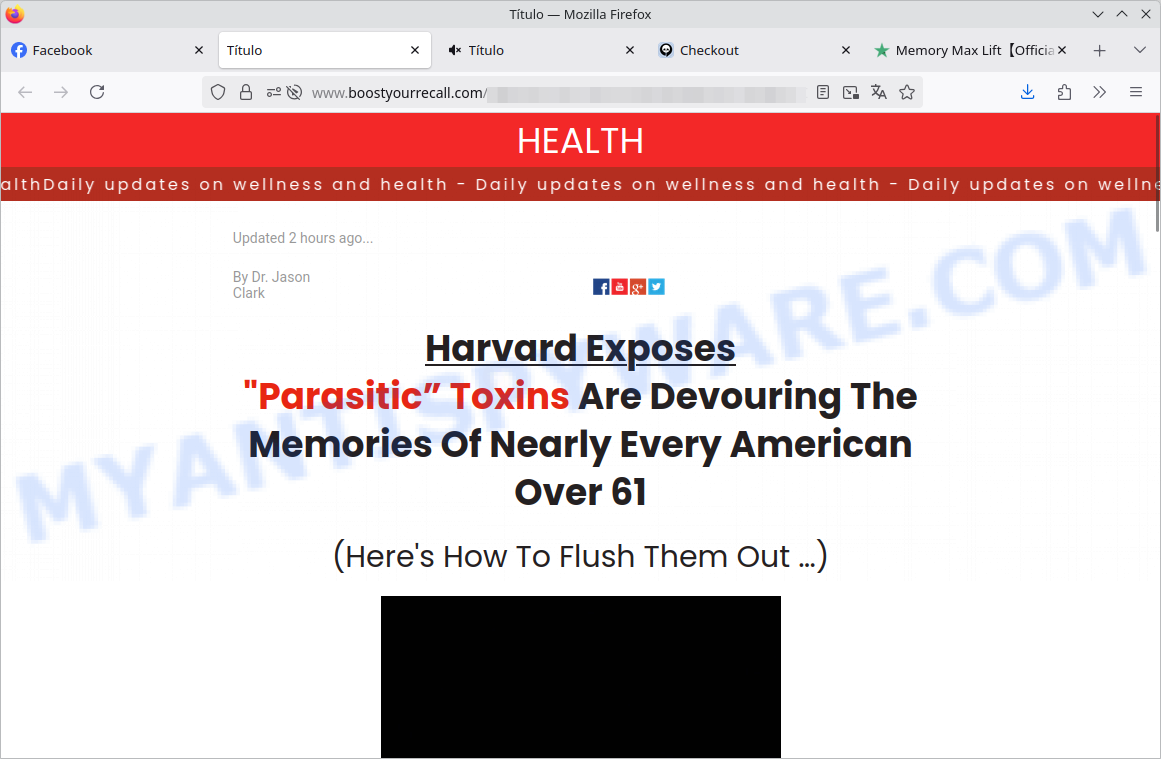
At its core, Memory Lift is not backed by any legitimate science, medical experts, or FDA approval. The supposed “news” articles are full of false claims and fake credibility badges, and the checkout pages run by sketchy payment processors have been linked to other supplement scams. Buyers risk losing their money, handing over sensitive data, and getting zero refunds. If you’re concerned about memory or brain health, steer clear of these honey-coated lies and stick with treatments recommended by real healthcare professionals.
💡 Heads-up: Similar Scams Are Everywhere. Memory Lift is not unique. It is one of many fake supplements, gadgets, and other schemes we expose in our Fact Checks section. All of them aim to grab your personal data or money. The people behind these scams run slick websites, spread bogus promo codes, and even pose as trusted brands or experts. Below are a few recent scams that follow the same playbook as Memory Lift: JetHose Pressure Washer, DropFit, UltraLink TV Antenna, Lmipki Nano Microneedle Patch, Memyts.
Table of Contents
🕵️♂️ How Memory Lift Operates
Memory Lift is a deceptive supplement scam. 🚨 It’s a fraudulent scheme promoting a fake “honey and brain hack” that promises unrealistic memory improvements and Alzheimer’s prevention without any scientific basis. 🔗 Step-by-Step Breakdown of the Scam:
📱 Misleading Social Media Ads
The scam starts with catchy Facebook videos claiming dramatic brain benefits from eating honey, such as “WHAT HAPPENS TO YOUR BRAIN 15 MINUTES AFTER EATING HONEY”. These videos serve as clickbait to lure users into the funnel.
🌐 Creating Fake Health Websites
Users who click the ads are directed to fraudulent sites like boostyourrecall.com. These sites mimic health news outlets, featuring fake articles with sensational headlines such as “Harvard Exposes ‘Parasitic’ Toxins Devouring Memories”. Articles are falsely attributed to non-existent experts, aiming to appear authoritative.
▶️ Non-Informative Video Content
The landing pages often feature dramatic videos with glowing brain imagery and urgent calls to “END BRAIN FOG”. However, these videos never explain any real technique or the “honey hack”. Instead, they build suspense to lead into a sales pitch.
📰 Faking Credibility
To reinforce legitimacy, the scam websites show unauthorized logos of major media like The New York Times and CNN, alongside fake live view counts and fabricated customer testimonials with stock photos. None of these entities are affiliated with Memory Lift.
💊 Promoting a Bogus Supplement
After the misleading content, visitors land on offers for Memory Lift dietary supplements. The pages employ fake scarcity tactics such as countdown timers and stock warnings, pressuring users to buy multiple bottles at inflated prices with purported “discounts” and a “180-day guarantee”.
💳 Using Untrustworthy Payment Processors
The checkout occurs on mycartpanda.com. It features fake trust badges, false ratings, and staged “live” purchase notifications aimed at creating urgency and trust.
❌ Exposing the Lies
There is no credible “honey brain hack”, no endorsements from Harvard or Ivy League scientists, and no legitimate research backing Memory Lift’s claims. The FDA and GMP certifications shown are fake graphics, and the money-back guarantee is rarely, if ever, honored.
⚠️ Risks to Consumers
Customers who buy Memory Lift often lose money and risk their personal and payment details being compromised. Attempts to get refunds are commonly ignored, and customer service is frequently unresponsive or unhelpful, leaving buyers with worthless products.
In summary, the Memory Lift scam uses deceptive ads, fake health news sites, false expert endorsements, and bogus customer reviews to sell an ineffective supplement. The entire campaign exploits common fears about memory loss and brain health to trick consumers. Always research thoroughly and avoid purchasing from suspicious websites like boostyourrecall.com and mycartpanda.com.
😱 What to Do If Scammed
If you find yourself ensnared by the Memory Lift Scam, immediate action is crucial. Here’s what you should consider doing:
🛑 Stop Further Transactions
The first step is to halt any additional transactions that might be in process. Contact your bank or credit card provider and inform them that you’ve fallen victim to a scam. They can help by blocking the card or reversing any unauthorized transactions.
📞 Report the Fraud
File a report with your local police and provide all the available evidence, such as screenshots, emails, and website URLs. Additionally, report the scam to online portals like the Better Business Bureau (BBB) at www.bbb.org or the Federal Trade Commission (FTC) at reportfraud.ftc.gov. If you’re in another country, reach out to your national consumer protection agency.
💻 Take Screenshots
Before the scam website gets taken down or changes, make sure to capture screenshots of your transactions and communications. These can serve as evidence if you decide to pursue legal action.
⚖️ Consult Legal Advice
Speak to a legal advisor about your situation. While pursuing legal action may be time-consuming and costly, it could be a possible avenue for recovering your lost money.
📢 Share Your Experience
Use social media platforms to share your experience and warn others about the scam. Your story could prevent someone else from falling victim to the same or similar scams.
Summary Table
| Factor | Observations | Impact on Legitimacy |
|---|---|---|
| Product Description | Memory Lift is claimed to be a brain-boosting supplement that restores memory, prevents Alzheimer’s, and clears brain fog. These claims are not backed by any scientific or medical evidence and rely on false stories like a “honey brain hack” to trick users. | Negative (False and unproven product claims) |
| Marketing Channels | The scam starts with misleading Facebook ads showing a “honey trick” video that leads users to fake news sites and sales pages. These use fake articles, fake endorsements, and bogus urgency tactics like countdown timers to pressure purchases. | Negative (Deceptive and manipulative marketing) |
| Website Authenticity | Websites like boostyourrecall.com use fake articles with made-up doctors, false media logos, and fake security badges to appear credible. The “FDA” and “GMP Certified” badges are fake graphics, not official. | Negative (Fake credentials and false appearance of trustworthiness) |
| Product Pricing and Offers | Memory Lift is sold with fake discounts, limited-time offers, and claims of large savings and guarantees to rush buyers. These offers are designed to push impulsive buying without proper evaluation. | Negative (Pressure selling with misleading pricing tactics) |
| Payment and Security | The checkout happens on mycartpanda.com, a payment processor linked to similar scams. It shows fake live purchases and security badges, but customer reports say refunds are hard or impossible to get. | Negative (Unreliable payment process and poor customer protection) |
| Customer Feedback | Reviews and testimonials are fabricated with stock photos. Independent platforms like Trustpilot report poor results, denied refunds, and bad customer service. | Negative (Fake reviews and poor customer experiences) |
| Company Transparency | No real contact or company information is available, and identities like “Dr. Jason Clark” are fake. The websites and product have no connection to real experts or trusted institutions. | Negative (Lack of transparency and false authority) |
| Safety and Refund Claims | Claims of safety, money-back guarantees, and secure payments are false. Customers often cannot get refunds, making purchases risky. | Negative (Misleading safety and refund claims) |
Conclusion
The Memory Lift supplement is a scam, built upon deceptive “honey and brain hack” gimmicks, fabricated testimonials, and misleading marketing tactics designed to appear credible but ultimately trick consumers. The promoters of Memory Lift use fake health videos, non-existent “Harvard-exposed toxins”, and false scientific claims to lure potential buyers into purchasing a supplement with no verified effectiveness.
Instead of providing genuine cognitive benefits, the scam relies on bogus social proof like fake live viewers, counterfeit media logos, and invented expert endorsements. Their websites, including boostyourrecall.com and the checkout platform on mycartpanda.com, misuse official-sounding certifications and security badges (like “FDA Approved” or “GMP Certified”) that have no legitimacy or backing. This manufactured sense of urgency — featuring countdown timers, false scarcity claims, and phony discounts — pressure consumers into rash purchases.
Bottom Line: Avoid Memory Lift at all costs. Always verify health claims from reputable sources and be skeptical of offers that use fear, false endorsements, and unrealistic promises to push products online. Sharing your payment information on suspicious sites risks losing money and personal data without any recourse. Stay cautious, do your research, and ignore these scams targeting those worried about memory loss.
